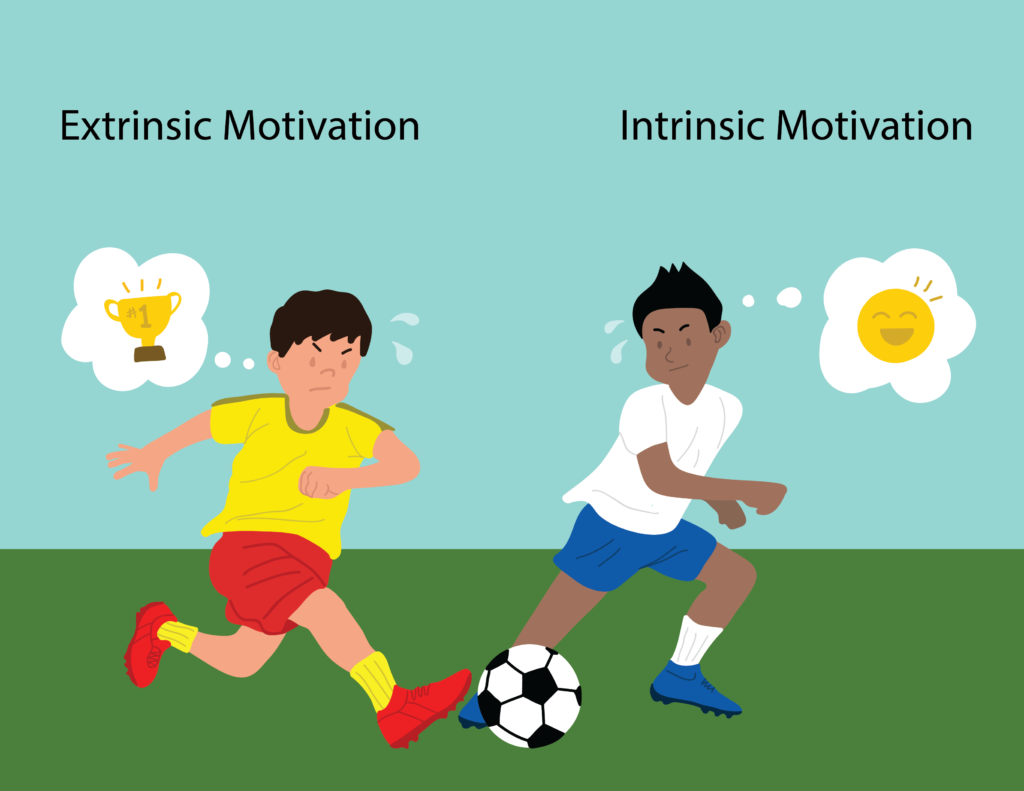Intrinsic and Extrinsic Motivations to Lead

“He who has a why to live can bear with almost any how.” – Friedrich Nietzsche
While at LeAD I have worked as a coder for the LeAD Assessment Center workshops, and as an intern at the LeAD Research Lab. I am particularly interested in researching the “Passion and Purpose” component of the LeAD 6P leadership model and the motivational processes behind leadership development. Great leaders can make an enormous impact in their organization and may even inspire a whole new generation of leaders. So how must one see oneself as such a leader? What makes someone want to become a leader? How would someone go about developing into an influential leader, and what are the reasons for wanting to become such a high impact leader in the first place?
I propose that people aspire to become leaders mainly for either intrinsic or extrinsic reasons. Intrinsic reasons include a desire to grow as well as interest in changing some aspect of one’s environment. The desire to learn and grow comes from the realization that growth is both necessary and enjoyable. Complex and challenging activities, along with effective and constructive feedback, can encourage a person to grow. Developing one’s own leadership abilities can be fun, and growing as a leader can be rewarding because of the benefits of higher intrinsic rewards such as well-being, and the intrinsic motivation of wanting to improve one’s surroundings. Such intrinsic motivation includes leading to help improve the lives of others – accomplishing an objective for others is rewarding in and of itself. Servant leadership and authentic leadership are examples of the intrinsic desire to lead.
Leaders can also develop for extrinsic reasons. Such extrinsic reasons include, but are not limited to, social connections, for gaining or avoiding a certain outcome, economic benefits, as well as desire for power. The desire to learn and grow from an external standpoint comes from the awareness of one’s social standing in a particular environment. External rewards and recognition can encourage a person to grow. Developing one’s own leadership abilities can be rewarding due to the benefits of recognition, higher extrinsic rewards such as higher status, and the extrinsic motivation of wanting to have more influence in one’s surroundings. Such motivation has outer motives and accomplishing an objective with a group is for a particular purpose. Charismatic leadership and transactional leadership are examples of the extrinsic desire to lead.
The passion and purpose of leading can originate from intrinsic or extrinsic motives. What fuels a leader’s passion to lead and why a leader chooses to lead in the first place may be for primarily intrinsic reasons, extrinsic reasons, or a balanced combination of the two. This is important because those who lead for extrinsic reasons may no longer have the desire to lead once their extrinsic goal has been fulfilled. They must constantly fuel their purpose by creating new extrinsic goals. While this may seem like a good strategy for goal setting, it can create a feeling of emptiness once goals are reached. This often comes in the form of: “Ok, so now what?” Intrinsically motivated leaders, however, do not have that problem. Intrinsically motivated leaders have the passion and purpose that extends beyond the immediate external goal for leading. Their desire to lead is like a well that overflows for the passion for leading others to achieve a mission, and their intrinsic desire to lead does not dry out once that goal has been fulfilled. This intrinsic motivation fuels a leader to move beyond the leadership demands that their current situation calls for, which means that intrinsic motivation is a more enduring form of motivation that can propel one to lead effectively.
Have you uncovered your intrinsic motivations to lead? What beyond the extrinsic trappings of leadership motivates you to be a leader?
—
Steven Zarian is a first year MA student at Claremont Graduate University. At LeAD Labs, he has worked as lead coder for the Role Play simulation of the LeAD Assessment Center, and as an intern at the LeAD Research Lab. He is particularly interested in researching the “Passion and Purpose” component of the LeAD Labs’ 6P leadership model and the motivational processes behind leadership development. In his free time he enjoys reading, hiking, swimming, and traveling.
Share